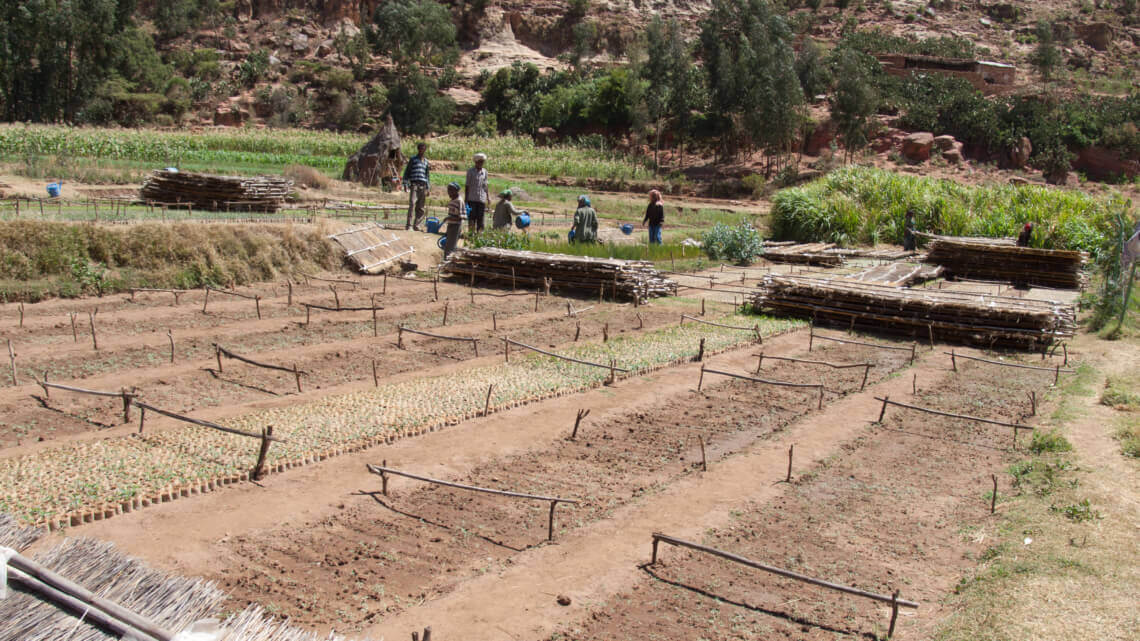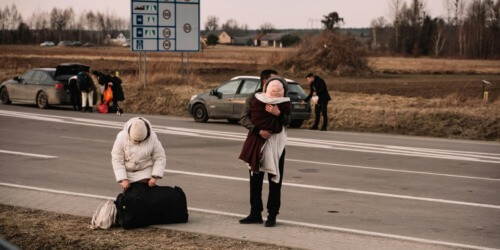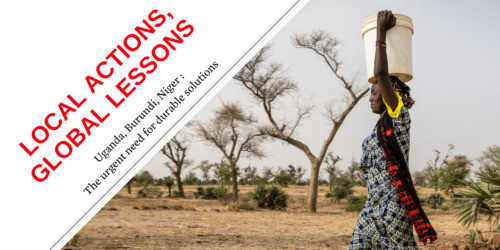Productivity and Insertion in the Market
Entitled “From sustenance to entrepreneurship”, this note is intended to guide Belgium’s development programs focusing on the agricultural sector in developing countries. In particular, it focuses on enhancing the productivity of farmers and their insertion into the market via value chains to lift them out of poverty and to strengthen their food security.
The Coalition Against Hunger, which brings together more than 20 French-speaking and Dutch-speaking NGOs specializing in agriculture and food, is aware that improving the income of farmers is essential for improving their living conditions. It is fundamental that small farmers can produce enough to feed themselves, maintain their health, and generate surpluses for sale on the market at profitable prices. To us however, prioritizing entrepreneurial logic in order to solve farmers’ problems does not seem to be an appropriate strategy.
3 Points that Pose Problems
On one hand, the new note does not sufficiently take into account critical recent research and recent work on the subject of agriculture (IAASTD, IPES Food, UN Special Reporter on Food). Yet, they show that the conventional, productivity-driven model is not sustainable and is not able to address the challenges of poverty, nutrition, dependency, price volatility or climate change. This model would also contribute to the continuance of gender inequalities.
On the other hand, the new note, which in principle deals with agriculture and food security, is only concerned with agriculture presenting commercial potential. It clearly insinuates that support for agriculture only makes sense if it participates in the market and creates value by including small producers in the sectors. Thus, this note neglects the risks for producers to engage too exclusively in these sectors (exposure to fluctuating markets and loss of autonomy). Moreover, it neglects the other factors that ensure food security: priority food supply of the local market, control of uncertainties, stable and decent incomes, distribution of the benefits of the transformation and the enhancement of production, …
Finally, in the twelve sub-Saharan African countries where Belgian international development is active, the absence of effective mechanisms for controlling and regulating trade and the private sector places farmers in a competitive environment that is totally unfavorable to them. The note promoting commercial agriculture does not address the issue of market inequality; and therefore, the need to fundamentally review the European Union’s economic partnership agreements with developing countries.
Agreement on Principles, not Application
In addition, we support the two fundamental principles of supporting a sustainable and inclusive agricultural sector and a human-rights based approach to international development; however, we do not agree on how the government plans to implement it.
For months, we have clearly advocated that the priority of Belgian international development should be sustainable family farming, support for food sovereignty policies, and the strengthening of farmers’ organizations. Unfortunately, despite our expertise in the field, we regret that our recommendations have not been heard for the drafting of this new note.
Can the Farmer Still Eat?
The strategy of Belgian international development is based on a “human rights” approach. This choice implies that the strategic note “Agriculture and Food Security” focuses on the realization of the “right to food” for all, particularly for the most vulnerable, who, for the most part, are disadvantaged farmers living in isolated areas (as a reminder, 795 million people still suffered from chronic hunger in 2015, 2/3 of whom were farmers). However, in his new strategy, the minister is prioritizing support for producers “presenting commercial potential”, i.e. those who are strong enough to integrate themselves into trade and vertical value chains. The question concerning the future of poorly performing farmers, who are struggling to ensure their livelihood, is swept aside by saying that these people will have to find other sources of income or be supported by social security. But these two tracks do not currently exist, or exist in a very fragmented way, in most of the partner countries.
Danger: Social and Environmental Concerns Eclipsed by Productivity
While Coalition Against Hunger members agree with the Minister that it is important to help disadvantaged farmers in the South to earn a decent income by strengthening their position in the market, they believe that the search for productivity should not be put on a pedestal to the point of eclipsing social and environmental issues. Thus, to be sustainable, agricultural production must preserve natural resources and not threaten the health of consumers. This implies a priority to utilize the agro-ecological approach with a gender perspective. In this sense, the minister’s note neglects the effective merits of supporting family farming that improve efficiency by methods that do not link farmers to credit and input suppliers. Similarly, the note does not emphasize the importance of diversifying both agricultural and non-agricultural activities to strengthen the resilience of family farms faced with increasingly unpredictable weather conditions.
The Coalition Against Hunger

NGOs members of the Coalition Against Hunger: Broederlijk delen, Caritas International, CNCD-11.11.11, Collective Food Strategies, Belgian Red Cross, CSA, Challenge Belgium Africa, Mutual Aid and Fraternity, FIAN – FoodFirst Information and Action Network Peace, Le Monde according to women, Leuven Cooperation, Oxfam World Shop, OXFAM Solidarity / Solidariteit, Oxfam Wereld Winkel, SOS Faim, TRIAS, Vétérinaires Sans Frontières, Vredeseilanden.
















